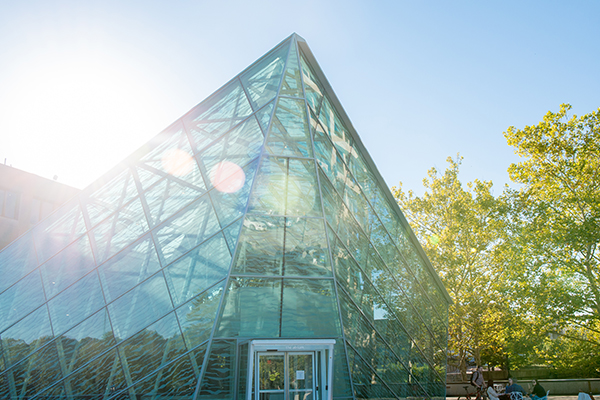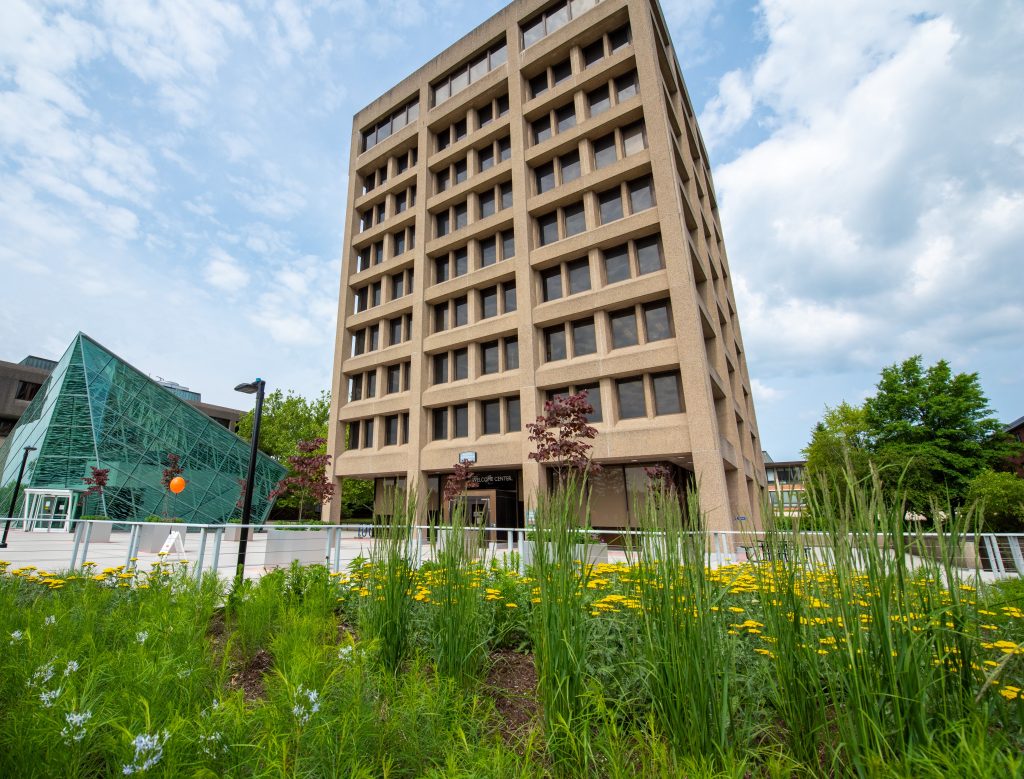College records major energy use decreases in 2021-22, saving more than $300,000
SUNY New Paltz’s Carbon Neutrality / Decarbonization Task Force is pleased to announce significant reductions in the campus’s energy use during the 2021-22 academic year.
In the most recent full year, the College’s natural gas usage was down more than 10% and overall electricity usage was down 6.4% compared to pre-pandemic years from 2014-2019.
In addition to environmental and societal benefits associated with lower energy use, these reductions saved an estimated $300,000 on the College’s annual utility bill.
This good news comes as New Paltz prepares to celebrate international Campus Sustainability Month this October.
“Congratulations goes to Facilities Operations staff across the Heating Plant and the shops who collaboratively worked together to improve campus-wide controls systems and upgrade equipment to implement these energy conservation measures,” said Assistant Director of Facilities Operations Jerry Beattie.
Among the intentional and strategic energy conservation measures put in place to realize these benefits, the most recent was a set of operational and equipment upgrades to the campus hot water heating system implemented in 2021.
These changes helped reduce campus carbon reduction in many ways, including:
Upgrading to variable frequency drives at the Central Heating Plant, a complex pumping system that provides heat and hot water to 30+ buildings. To our knowledge, only one other SUNY campus has implemented this energy conservation measure at a Central Heating Plant.
Modulating high temperature hot water system temperatures at the Central Heating Plant to correspond with outdoor air temperature.
Upgrading building-level controls systems so that hot water flowing throughout building systems is modulated based on outdoor air temperature, averaging 120 degrees to 140 degree at the building level, but at times reaching as low as 90 degrees.
Reducing pumping differential pressure across the campus-wide heating system.
Upgrading to building-level variable frequency drives.
In addition to these changes, there are a number of efforts that were undertaken over the past decade and are still accruing energy-saving benefits. Many of these took place between 2015-2020 and were led by now-retired Energy Management Coordinator Brian Pine.
Those include LED upgrades for nearly all exterior campus lighting and many interior lights; the addition of insulating jackets to hot water piping in mechanical room basements; installation of rooftop solar photovoltaics connected to a battery microgrid; and repairing steam traps, among others.
Further energy conservation measures have been implemented by our mostly NYSERDA-funded On-Site Energy Manager consultant, Dan Spillman from Guth DeConzo Consulting Engineers.
Visit the Office of Campus Sustainability online to learn more about our energy reduction initiatives and opportunities for students, faculty, staff, alumni and community members to get involved.


